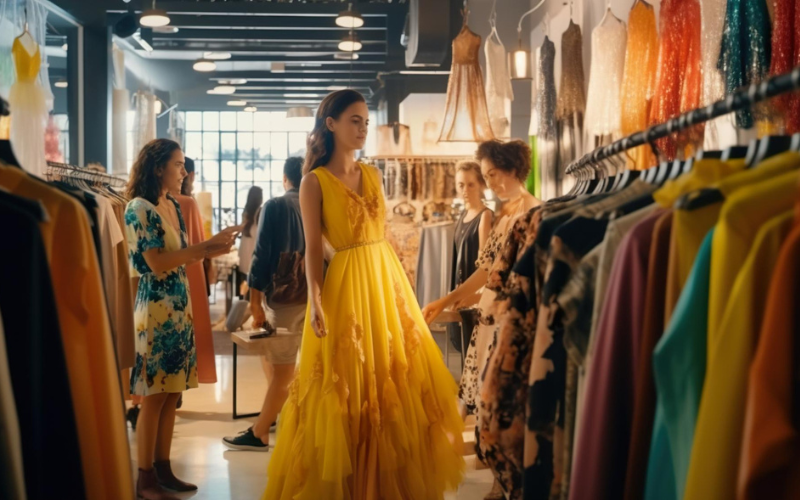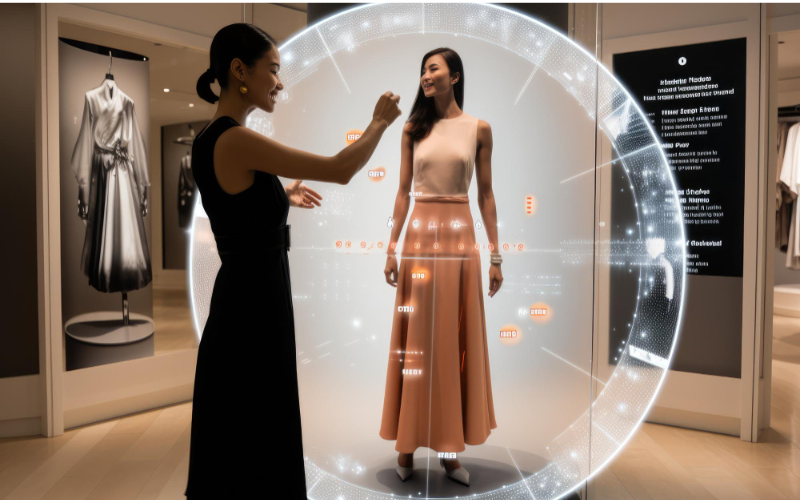In the ever-evolving world of fashion, the educational journey one chooses can significantly impact their career trajectory. The debate between pursuing a Master in Fashion Design & Technology and an MBA in Fashion often hinges on career aspirations. While the MBA in Fashion primarily addresses the strategic, managerial, and marketing facets of the industry, the Masters in Fashion Design & Technology offers a comprehensive exploration of how technology reshapes fashion design. This blog aims to provide information about the unique features of these two educational paths, focusing on the innovative Masters in Fashion Design & Technology program at the International College of Fashion (ICF).
Embracing Technology in Fashion Design
Technology integration in fashion design is not just a trend, it is a revolutionary shift redefining the industry. The Masters in Fashion Design & Technology at ICF is a testament to this transformation, embedding technology at the core of its curriculum. Students engage with advanced software and tools, preparing them to be pioneers in the field. This program does not just teach students to design, it equips them to innovate, leveraging technology to create sustainable, cutting-edge fashion. The focus is on nurturing a new generation of designers proficient in the latest technological advancements, from wearable technology to eco-friendly design practices, ensuring they are well-prepared to lead the industry.
The ICF Edge in Fashion Design & Technology
Masters in Fashion Design & Technology program stands out for its holistic approach to integrating technology with creative design. The curriculum is thoughtfully designed to ensure students master the art of combining aesthetics with functionality, using technology to enhance their creativity. In addition to access to modern labs and tools, students benefit from collaboration with industry leaders, gaining insights into real-world applications of technology in fashion. Workshops, guest lectures, and internships further enrich the learning experience, providing students with theoretical and practical aspects of Fashion technology. This comprehensive educational approach ensures that graduates are not just designers but innovators, ready to contribute to the industry with fresh ideas and technological expertise.
MBA in Fashion Marketing: A Different Focus
Although the MBA in Fashion Marketing provides crucial knowledge on the business aspects of fashion, such as market trends, consumer behavior, and strategic brand management, it does not offer the in-depth technological engagement found in the Masters in Fashion Design & Technology. The MBA program is ideal for those who aim to excel in marketing, brand management, or fashion retail. Understanding this is crucial for students to make an informed decision about their educational path, ensuring they align their studies with their career ambitions in the rapidly evolving fashion industry.
Career Opportunities with a Masters in Fashion Design & Technology
Graduating from ICF’s Masters in Fashion Design & Technology opens many career paths in the fashion industry. Alums find themselves well-prepared for roles that merge design with technology, such as digital fashion designers, sustainable fashion innovators, or fashion tech entrepreneurs. The program’s emphasis on technology also equips students for emerging sectors within the industry, like smart textiles, fashion app development, or virtual fashion platforms. This breadth of career opportunities is a testament to the comprehensive approach of the program, preparing students for the present industry demands and the future of fashion.
Choosing ICF for Your Fashion Education
Selecting where to pursue your fashion education is a decision that significantly impacts your career path and professional growth. International College of Fashion (ICF) offers a distinctive educational experience, mainly through its Masters in Fashion Design & Technology program, designed to prepare students for the future of the fashion industry. Here is why ICF stands out:
- Innovative Curriculum: Master’s program of ICF is a beacon of innovation, combining the artistic aspects of fashion design with the latest technological advancements. This forward-thinking approach ensures that students are well-versed in traditional design principles while adept at leveraging technology in fashion.
- Comprehensive Education: The program provides a comprehensive education that covers a broad spectrum of the fashion industry, from conceptual design to market realization, ensuring that students gain a broad and in-depth understanding of the field.
- Commitment to Technology: The commitment of ICF to blending technology with design is evident in its state-of-the-art facilities, where students can access advanced tools and resources, enabling them to explore and create at the forefront of fashion technology.
- Industry Connections: The strong ties of the institution with the fashion industry provide students with valuable networking opportunities, internships, and insights into the real-world dynamics of the fashion world, facilitating a practical understanding and application of their knowledge.
- Skill Development: At ICF, the focus is not just on learning but on skill development. Students are equipped with the necessary knowledge and skills to innovate and excel, preparing them to be industry leaders who can navigate and contribute to the evolution of fashion.
- Redefining Fashion: ICF encourages students to think creatively and critically, empowering them to redefine fashion. The educational experience at ICF is designed to inspire students to challenge the status quo, innovate, and set new trends in the fashion industry.
By choosing ICF for your fashion education, you are not just learning about fashion, you are preparing to be a part of its future, equipped to innovate, lead, and excel in a dynamic and ever-evolving industry.
Conclusion
As technology continues to shape the future of fashion, selecting an educational path that aligns with evolution is crucial. The Masters in Fashion Design & Technology at ICF offers an immersive, comprehensive education that prepares students for the technological future of fashion. ICF is nurturing the next generation of fashion industry leaders with a curriculum that balances design creativity with technological proficiency. Whether you are drawn to the creative aspects of design or the innovative potential of technology in fashion, a master’s program offers a unique, enriching educational experience. Explore more about ICF and how its Masters in Fashion Design & Technology program can shape your career in the vibrant world of fashion at www.icf.edu.in.










